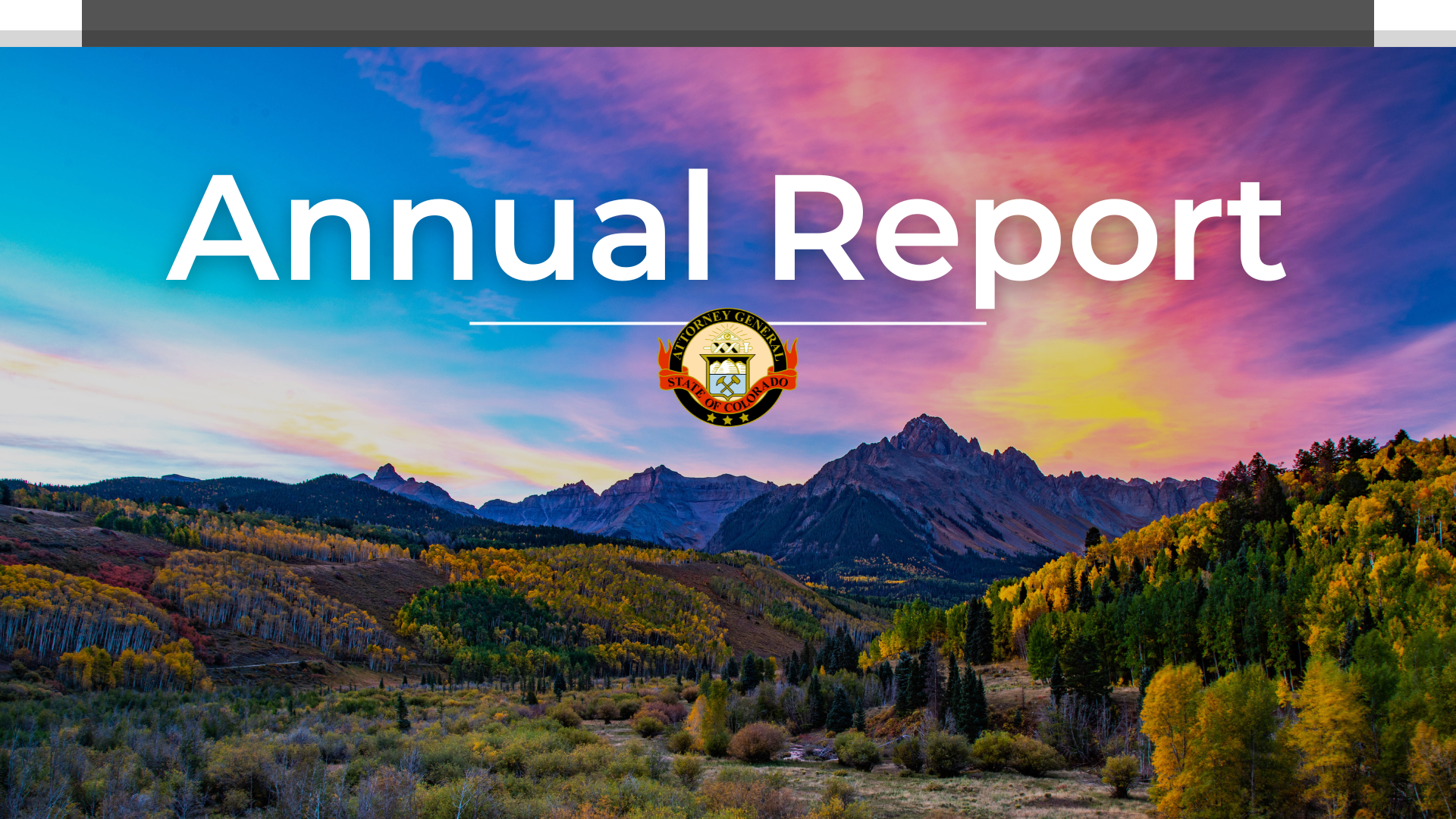The Colorado Attorney General is one of four independently elected statewide offices in Colorado and was established by the State Constitution upon statehood in 1876.
The Attorney General and the Department of Law, collectively referred to as the Colorado Attorney General’s Office, represent and defend the legal interests of the people of the State of Colorado and its sovereignty. The Attorney General exercises the responsibilities given to the office by the Colorado Constitution, statutes enacted by the Colorado General Assembly, and the common law.
The Attorney General has primary authority for enforcement of consumer protection and antitrust laws, prosecution of criminal appeals and some complex white-collar crimes, the Statewide Grand Jury, training and certification of peace officers, and most natural resource and environmental matters. Additionally, the Attorney General’s Office works concurrently with Colorado’s 22 district attorneys and other local, state and federal law enforcement authorities to carry out the criminal justice responsibilities and activities of the office. The Attorney General is also the chief legal counsel and advisor to the executive branch of state government including the governor, all of the departments of state government, and to the many state agencies, boards, and commissions.
The Department is largely a cash-funded agency that receives funding from state agencies and various programs for the provision of legal services, the investigation and prosecution of fraud, and the protection of citizens of this State through a number of consumer protection efforts. The Department delivers its responsibilities with a $133 million appropriated budget and utilizes roughly 630 employees to carry out these responsibilities.
The Department’s services are mainly delivered through eight operational sections.
These sections carry out their specific responsibilities in order to provide the highest quality legal representation for state clients, to all state government agencies, and each program and board within. Additionally, investigative and prosecutorial efforts help protect the interests of state citizens by minimizing fraud and ensuring public safety.
